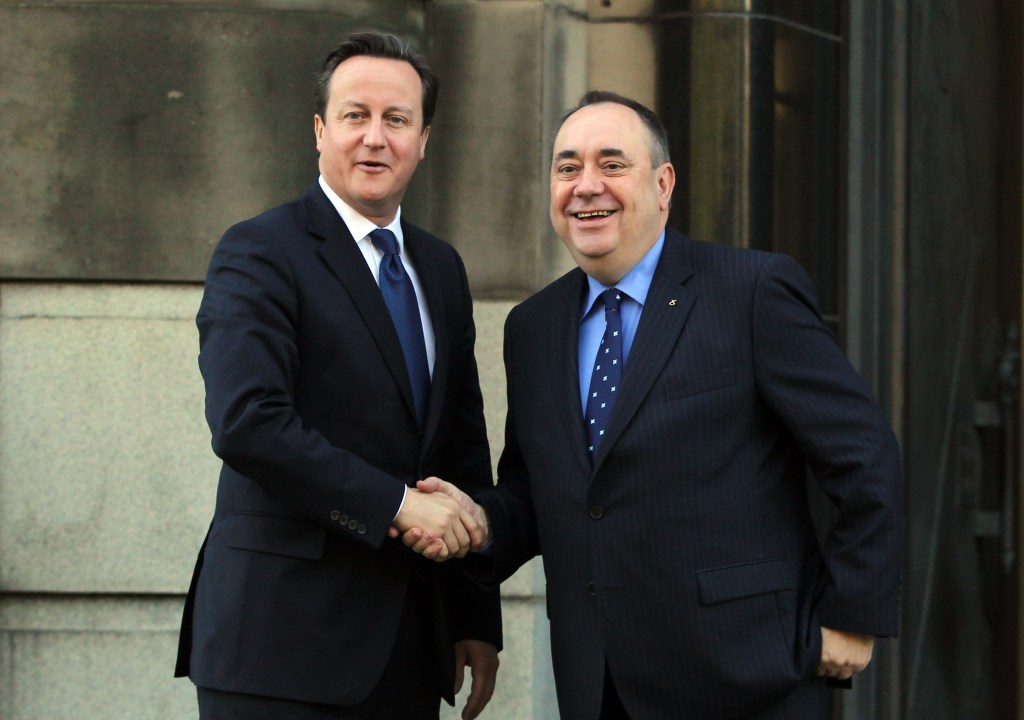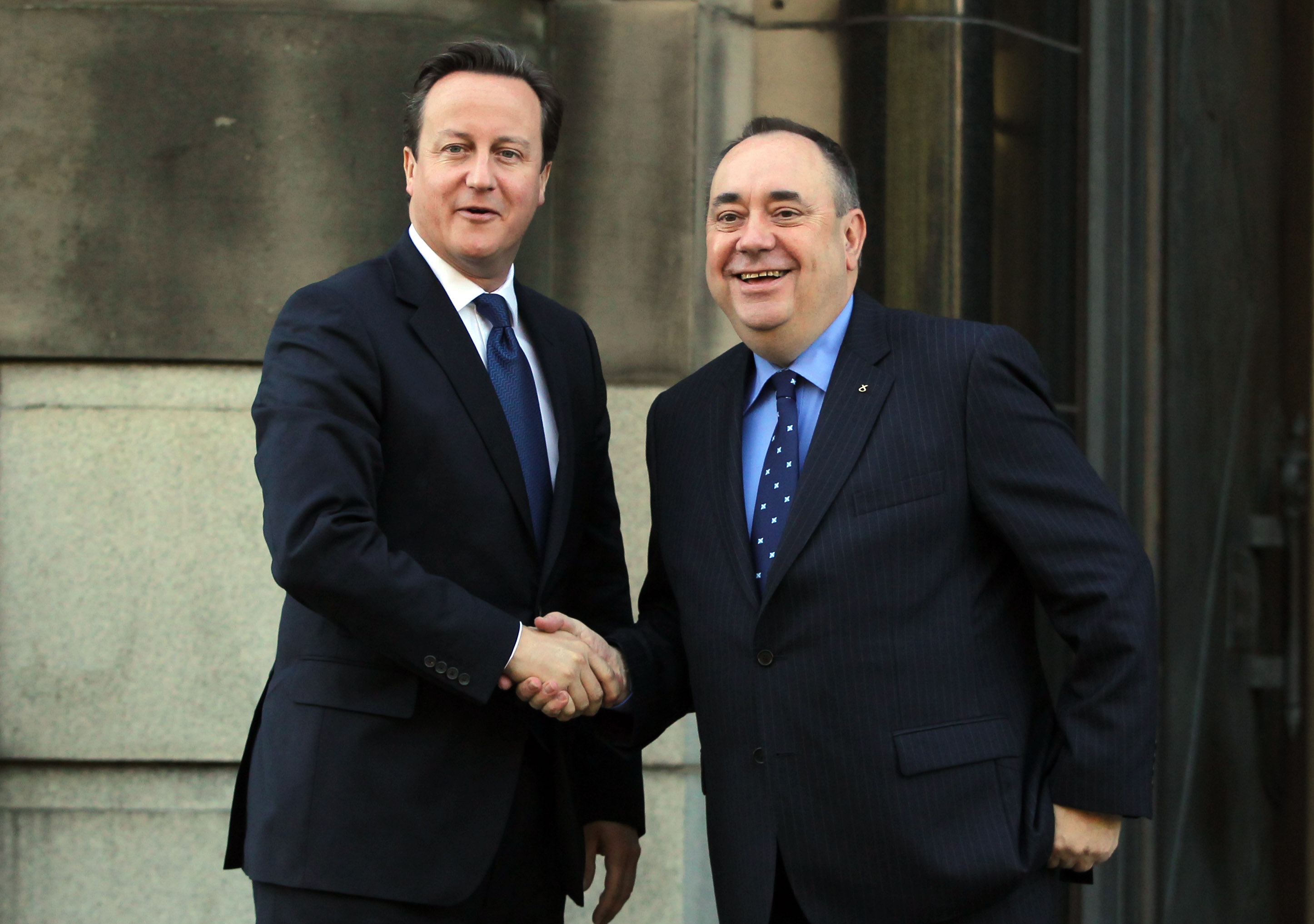We have been here before, you know. Seven years ago Alex Salmond looked forward to the prospect of a hung parliament and spied an opportunity to ‘make Westminster dance to a Scottish jig’. If Scotland returned at least 20 SNP MPs – members, as the then First Minister indelicately put it, ‘ready, willing, and able to defend our parliament and our people’ – then Scotland’s interests might yet hold the balance of power in London. Not, he stressed, as part of any formal coalition but on a case-by-case and vote-by-vote basis.
That didn’t happen, of course. The SNP won only six seats in 2010. Still, a victory delayed is not the same as a victory denied and Salmond’s party stands on the brink of a historic victory. Labour need to haul themselves up to perhaps 35 percent of the Scottish vote if they’re to remain the largest party in Scotland. That would be both a disastrous result for Labour and a miraculous reprieve.
Salmond, I suggested last month, has a new roving commission. He is Nicola Sturgeon’s Ambassador to London television studios and his brief is to stir up trouble wherever he can. Hence his weekend suggestions that the SNP, not Labour, would be the real power in the land and Messrs Miliband and Balls would just have to get used to that. If Labour think they can stiff the SNP they’ve got an unpleasant appointment with reality waiting for them.
Labour’s approach relies on the notion that Scots will punish any party that is seen to assist the Tories. That means, Labour think, the SNP have nowhere to go. They will not be forgiven for ruining a Labour government and risking another Tory ministry.
There is something to this but not, perhaps, as much as Labour think. The truth – however bizarre this may seem to some – is that many SNP supporters see little to no difference between the Conservative and Labour parties. Granted, four in ten nationalists say they favour an arrangement with Labour but an equal number want nothing to do with either traditional power and – gosh – 20 percent or so of SNP voters are quite happy to do a deal with the hated Tories.
Any Tory-SNP deal would, for sure, be a risky choice for the SNP but it’s not, no matter what they say now, an impossibility. There are Tories – Paul Goodman for instance – who can see their way to such an accommodation. Each would gain something from such an arrangement. The SNP would get something closer to full fiscal autonomy; the Tories would, to a considerable degree, get rid of Scotland.
True, this means shafting the Scottish Conservative and Unionist party which, right now, has little to no interest in such a deal but if that’s the price to be paid for another term in office for David Cameron then, well, the Scottish Tories may not prove too great an obstacle.
Remember, too, that before the last election many, many, people insisted that a Tory-Lib Dem deal could never happen. And look what happened next. Pre-election promises to rule this in or that out count for very little once the votes are counted and the parliamentary arithmetic needs to be crowbarred into place.
And would an arrangement with the Tories really damage the SNP so badly? Could it not be presented as the next best thing to independence, the best way to protect Scottish interests, the only available way of freeing Scotland from Westminster entanglements, the greatest way to stand up for Scotland? The best way to ‘defend our people’? I fancy plenty of Yes voters could live with that. Sure, they say they want no part of a deal with the Tories but it’s hard to turn down an offer that gives you what you say you want.
Granted, this kind of deal requires some Tory flexibility too. It takes a measure of chutzpah to condemn Labour’s flirtation with the nationalists while simultaneously contemplating a deal of your own. Such flexibility, such chutzpah, is hardly unknown however and the Tory instinct for power and self-preservation remains a powerful one.
Look at the Canadian example. In recent years Stephen Harper has condemned the idea of a Liberal pact with the Bloc Quebecois – how can you let these separatists into power in Ottawa!? – yet, according to the BQ in 2004 Harper was prepared to countenance an arrangement with the Quebeckers when he thought he might need their votes. That is, when reality – and arithmetic – changes, principles have a habit of melting. Nothing is impossible.
As Hugo Rifkind says (and he is right):
So this is where we are. We have Labour being called Tories in Scotland, and the SNP being called Labour in England. We have Tories abandoning unionism for their own self-interest (while pretending they haven’t) and Labour cleaving to it for theirs (while pretending they aren’t). We have the SNP casting coy, come-hither looks at a coalition with Labour, even though they wouldn’t enter one and wouldn’t even be asked to, and are secretly on the same page as the Conservatives anyway.
Yikes.
And remember, too, that this is a two-election game. Westminster 2015 is just the overture to Holyrood 2016 and the results of that election will, in terms of the debate over the national question, be just as significant. By then, you see, the SNP hope to be in a position to claim that just one more heave is required. That seems likely – right now – to be the case regardless of whether Ed Miliband or David Cameron loses this election less badly than his rival.
No wonder Salmond thinks the jig is up.








Comments